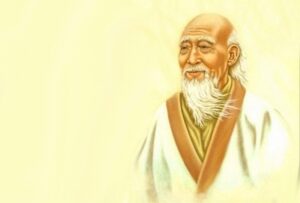 The boys drink and review Glacial Drift, a spiced winter ale from Heavy Seas, then discuss housing, and why the prices are so high.
The boys drink and review Glacial Drift, a spiced winter ale from Heavy Seas, then discuss housing, and why the prices are so high.
What factors have caused home prices to go so high? And how do regular families afford these McMansions? It seems the ratio of income to house prices has changed radically since the 1970s.
Part of it is the assumption of two incomes in each family.
Also, we have bigger houses with fewer people in them. Houses get bigger while families get smaller.
If you track the change in wages vs. the price of homes, inflation-adjusted wages have stayed about the same since the 1960, but houses are twice as expensive.
Are government regulations causing the increase in home prices? Or is it some other factor?
 The boys drink and review a holiday ale from New Belgium, then discuss the erosion of public standards of conduct.
The boys drink and review a holiday ale from New Belgium, then discuss the erosion of public standards of conduct.  In this end-of-the-year show, the boys review their home-brewed Christmas ales, then discuss New Year’s resolutions.
In this end-of-the-year show, the boys review their home-brewed Christmas ales, then discuss New Year’s resolutions.  The boys drink and review Honey Kolsch by Rogue Brewing, then talk about how the media treats mass shootings. As with so many issues in the news today, you have to peel back the agenda from the news coverage. Often the media can’t even wait for the facts to come out before they start with their interpretations and explanations.
The boys drink and review Honey Kolsch by Rogue Brewing, then talk about how the media treats mass shootings. As with so many issues in the news today, you have to peel back the agenda from the news coverage. Often the media can’t even wait for the facts to come out before they start with their interpretations and explanations.  The boys drink and review a peppermint Imperial stout, then discuss Christmas music.
The boys drink and review a peppermint Imperial stout, then discuss Christmas music.  The boys drink and review
The boys drink and review  The boys drink and review a homemade batch of
The boys drink and review a homemade batch of  Along with special guest Longinus, the boys drink and review Space Dust IPA by Elysium brewing, then discuss a few short stories from The Illustrated Man by Ray Bradbury.
Along with special guest Longinus, the boys drink and review Space Dust IPA by Elysium brewing, then discuss a few short stories from The Illustrated Man by Ray Bradbury.  With special guest Longinus, the boys drink and review a smoked maple porter from Flying Dog Brewery, then discuss Daoism and the Tao Te Ching.
With special guest Longinus, the boys drink and review a smoked maple porter from Flying Dog Brewery, then discuss Daoism and the Tao Te Ching.  In the November 2022 edition of “five for five”, the boys drink and review a bourbon barrel-aged imperial stout from Guinness, then discuss five topics in five minutes each.
In the November 2022 edition of “five for five”, the boys drink and review a bourbon barrel-aged imperial stout from Guinness, then discuss five topics in five minutes each. 

 In this quick episode, the boys share their favorite Thanksgiving foods and thoughts about this quintessentially American holiday, and reflect on why it’s important to be thankful and grateful.
In this quick episode, the boys share their favorite Thanksgiving foods and thoughts about this quintessentially American holiday, and reflect on why it’s important to be thankful and grateful.